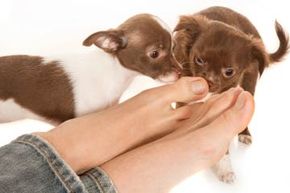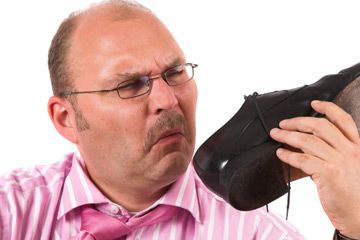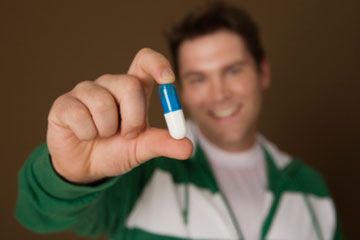After a long day at the office, there's nothing like coming home, changing into a comfy T-shirt and sweatpants, and taking off your shoes. Or, you might be the kind of person who likes to slip off your shoes under your desk or during long meetings. It only makes sense; when your feet are clad in socks and (possibly uncomfortable) shoes all day, it's natural to want to give them some air and wiggle room. And when the weather warms up, it feels wonderful to bare your feet in open-toed shoes, sandals or flip-flops.
You probably wouldn't give a second thought to exposing your feet in any of those ways, and nobody around you would think anything of it, either. Feet aren't the most attractive part of the body, but as long as yours appear clean and well-groomed, that's all that matters. However, the prettiest pedicure or cutest socks make no difference if your feet stink. You might not even be aware of it until your significant other -- or, even worse, a friend or colleague -- points out that there's a distinctly foul smell in the air emanating from your feet.
Advertisement
Maybe they just wrinkle their noses, and it's taken you a while to figure out that your foot odor is the cause. Now what are you supposed to do? Keep your shoes on forever when you're around other people? Never wear sandals again? That would work, but you probably wouldn't be very happy sitting around your house, or the beach, with shoes on all the time.
Foot odor can be embarrassing, and getting rid of it might not be as simple as just rubbing on some antiperspirant. However, there are lots of different things that you can try. Read on to find out what causes that stench in the first place. Knowing why you have this unfortunate problem can help you figure out how best to get rid of it.
Advertisement



